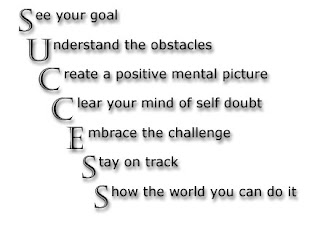YOUR MODE is one of the key elements of your personality makeup. It defines your general approach to life, your acting style or modus operandi. There are seven basic options: Aggression, Passion, Power, Observation, Perseverance, Caution, and Repression.
The seven Modes
As with all “overleaves” or character structures, there are seven possible types of Mode — seven ways of approaching your life Goal.
The seven Modes with their positive and negative variants are as follows:
|
S.No. |
MODE |
POSITIVE |
NEGATIVE |
|
1 |
Repression |
Reserve / Restraint |
Inhibition |
|
2 |
Caution |
Deliberation |
Aversion |
|
3 |
Perseverance |
Persistence |
Immutability |
|
4 |
Observation |
Clarity |
Surveillance |
|
5 |
Power |
Authority |
Oppression |
|
6 |
Passion |
Self-actualization |
Identification |
|
7 |
Aggression |
Dynamism |
Belligerence |
Aggression and Perseverance
The action pair, Aggression and Perseverance, is focused on getting results in the outer world.
They both take the approach of applying effort to ensure a definite outcome, but in opposite ways: a person with the Mode of Aggression acts with explosive force which tends to ensure immediate impact, while a person with the Mode of Perseverance acts with dogged persistence which gets there in the end despite opposition or difficulty.
Aggression is useful for getting things done really quickly and effectively; Perseverance is useful when you have to deal with long-term difficulty, such as repeated failure or outer resistance.
Passion and Repression
The inspiration Modes, Passion and Repression (also known as reservation), are not so much about the outward action as the inner emotional experience of moving into action.
Both Passion and Repression take the approach of optimizing that experience, but in opposite ways.
A person with the Mode of Passion invests wholeheartedly in their activity, keeping the full range of emotions up front, immersing themselves in the intensity of the moment. With Passion you can be completely in the flow, which is an uplifting experience.
On the other hand, a person with the Mode of Repression removes personal feelings and desires from their own activity, keeps themselves contained, achieves a high level of self-discipline. In other words, they rise completely above their own emotional tendencies.
(Note ~ The Freudian of notion of repression means blocking certain feelings from your own awareness; here it simply means preventing feelings from interfering with your ability to act.)
Passion is useful when you want your way of acting to call upon your emotional energies, as in inspirational speaking for example. Repression is useful when you want to act with quiet grace and perfect self-control, as in ballet.
Power and Caution
The expression modes, Power and Caution, both focus on the mental certainty and confidence with which we act in the world, but in opposite ways.
A person with the Mode of Power acts (and speaks) with great certainty, loud and clear, as though they always know exactly what to do in any given situation. Even when they are just making it up as they go along, they still have (and express) huge confidence in their own approach.
As a display of certainty and confidence, the Mode of Power is attention-grabbing. It tends to attract followers who are willing to trust this person’s every word. For this reason, it can be mistaken for the Goal of Dominance or even the King soul archetype. However, the King soul embodies an inherently confident and authoritative way of being that runs deep, whereas Mode of Power is a more surface-level approach to undertaking actions.
Likewise, the Goal of Dominance reflects a constant desire to lead, with or without confidence, whereas the Mode of Power reflects a confident, risk-taking approach to any life Goal. In a nutshell — the Mode of Power approaches life confidently; the Goal of Dominance seeks power. (It is of course possible for someone to have both Goal of Dominance and Mode of Power in their personality make-up. Examples include Julius Caesar, G.I. Gurdjieff, Al Capone, and L. Ron Hubbard.)
When the display of certainty comes from a true self-confidence in their own abilities, fine. When it is nothing but an act, however, it can easily lead others astray.
A person with the Mode of Caution, on the other hand, is highly sensitive to uncertainty, or lack of knowledge about what lies ahead. They like to gather key information before acting so that they can painstakingly plan and rehearse each step of the performance. They finally walk out onto the stage, as it were, once they feel sufficiently confident about their performance.
Power Mode is useful for those in leadership roles where they are expected to demonstrate self-confidence to others. Caution Mode is useful for roles where it is important to minimize the risk of failure, though the social fear of being seen to fail can become debilitating.
Observation
The assimilation Mode, Observation, provides a neutral option. This Mode is not about taking any consistent long-term approach to doing stuff. Rather, it is the “mode of no mode”, just watching what happens in the short term, observing more than participating.
As such, this is the most flexible and pragmatic Mode to have since it allows you to adapt on the fly.
There are interesting side-effects for those having the Observation Mode. One is that they tend not to stand out in any particular way in terms of moving into action, but just seem to blend into the background. On the other hand, another side-effect is that by paying so much close attention to what is going on, they do seem to be very present and interested, in a quiet sort of way.







 CAclubindia
CAclubindia
